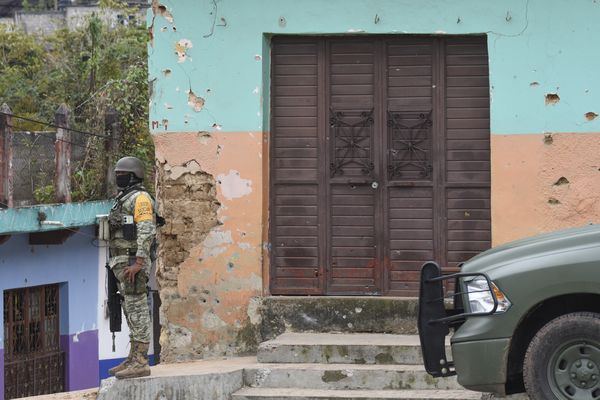
Last month, Australian permanent resident and Malaysian citizen Kean Wong was detained by authorities in Kuala Lumpur for editing a book of essays that contained criticism of the government of Malaysia.
He is now safely back in Australia, but the incident highlights how the government of Malaysian Prime Minister Anwar Ibrahim has failed to live up to its promise of loosening restrictive laws, reverting to the tactics of its predecessors just a year after coming to power. It is back-pedalling from reforms and pledges that saw the country jump ahead 40 places on the World Press Freedom Index earlier this year.
Wong, a former journalist at The Australian Financial Review who has lived and worked in Australia for about 30 years, was arrested and investigated for sedition while he was trying to renew his Malaysian passport on October 16. His arrest came three years after the publication of Rebirth: Reformasi, Resistance, and Hope in New Malaysia. It had been banned in 2020, ostensibly for its cover, which was seen to be insulting by supporters of the former ruling party Barisan Nasional.
The book highlighted corruption and governance issues linked to the party that dominated the country’s politics from its independence until it was finally tipped from power in the landmark 2018 election. The cover is based on an artwork that has been shown in art galleries since 2014 and features images of a young woman, a crocodile and two tigers in something of a pastiche of the country’s national coat of arms.
The deteriorating media landscape, unsurprisingly, has reflected the souring political situation in the country of 35 million and the fifth largest, albeit faltering, economy in South-East Asia after Indonesia, Thailand, Singapore and Vietnam.
“Kean Wong’s arrest, after three years from the time the book was banned, demonstrates the state’s concerted effort to suppress the public’s ability to both inform and to speak out without fear of censorship,” read a joint statement signed last month by Amnesty International Malaysia, Centre for Independent Journalism, 29 other groups and 40 individuals.
“We urge the authorities to cease all investigations with immediate effect and demonstrate their commitment to upholding the rights bestowed upon the people by the federal constitution of Malaysia and under the Universal Declaration of Human Rights.”
The groups described the Sedition Act and the Printing Presses and Publications Act as archaic legislations with broad provisions often arbitrarily used as a weapon to silence critics.
In 2021, under previous administrations, Human Rights Watch noted that police summoned two journalists from prominent online news outlet Malaysiakini for allegations that police brutality was the cause of a death in detention. In July, a journalist from healthcare news portal Code Blue was pulled in for questioning over an article about a COVID-19 outbreak at a vaccination centre.
The Federal Court upheld a defamation ruling against Malaysiakini, rejecting the public interest defence and posing a serious risk to media freedom. In March 2022, a seven-judge panel of the Malaysian Federal Court dismissed Malaysiakini’s bid to review the court’s 2021 finding of contempt over five online comments posted by readers.
Anwar’s government had promised to repeal the act, as well as the similarly wielded Printing Presses and Publications Act and Section 233 of the Communications and Multimedia Act, which media and rights groups say restrict freedom of expression.
Press freedom is theoretically guaranteed by Article 10 of the constitution, which provides for the freedom of expression, Reporters Without Borders says: “But draconian legislation allows the authorities to restrict these freedoms by jailing journalists — up to 20 years in prison for those accused of violating the 1948 Sedition Act and 14 years for the 1972 Official Secrets Act.
“The Communications and Multimedia Act gives the government strict control over the issuing of media licences, and the 2021 “anti-fake news” emergency ordinance gives it the completely arbitrary power to demand the removal of any report it regards as ‘false’.”
Under any political pressure, governments in Malaysia have used this legislation to silence critics. Anwar has been grappling with the continuing rise of the Malaysian Islamic Party, which gained ground in the federal election in which he came to power last year after decades in waiting.
In provincial elections in August, right-wing Islamist groups strengthened their hold on three of six states that held elections. This has seen him throw support behind Hamas. In August, several websites critical of the government were arbitrarily suspended.
Malaysia may have the highest press freedom ranking in South-East Asia, but that is only a lowly 73 in the world. Anwar has shown he is susceptible to using existing laws to help political manoeuvrings. It’s disappointing but in the context of a region that struggles with free media, hardly unexpected.







